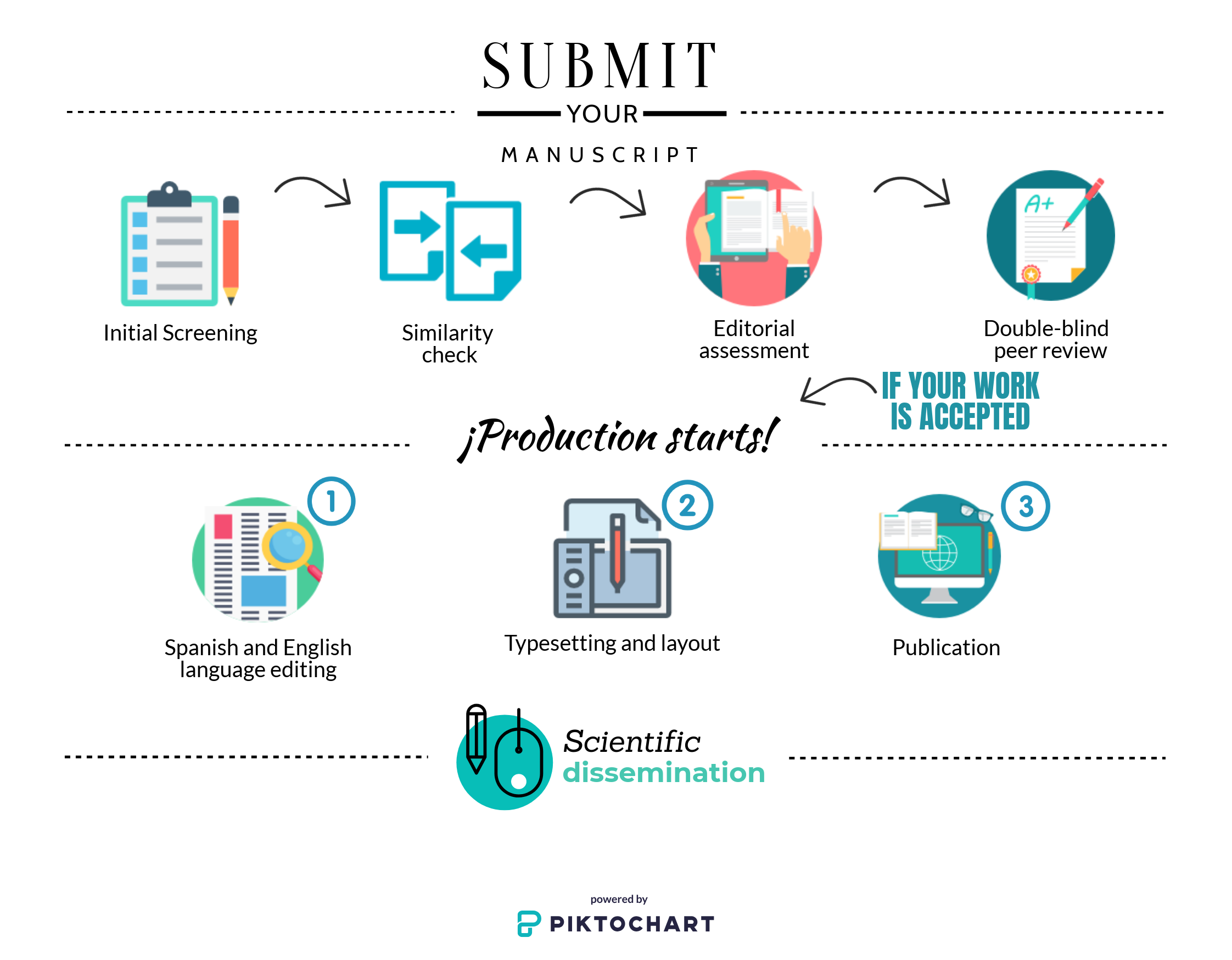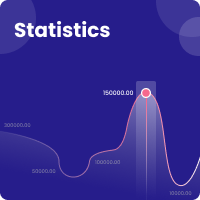Editorial Workflow

Once the article is received in the journal Trilogía, the author will be answered and included in the editorial process, which will be developed in the following phases, the fulfillment of each stage is a prerequisite to continue the process:
Preliminary evaluation: In this stage the structure of the article and the fulfillment of the application requirements will be reviewed (listed in the section Author Guidelines). Likewise, strict compliance with the ethics policies and good practices defined by the journal will be verified, in which it is established that the editors will NOT allow breaches of professional ethical codes, such as: plagiarism, double publication, fraudulent use of data and false statements of authorship, among others; This process includes the verification of the originality of the manuscript through a software for the identification of coincidences. In case of identifying indications about infractions of these codes of ethics, the procedure established in the COPE flow diagrams will be followed to resolve cases of suspected bad practices (see here).
Once the review is completed, the author will be notified about the news and decisions made with his manuscript, which may be: rejection for non-compliance with the requirements, request for modifications to correct necessary requirements before proceeding with the process or continuation with the editorial process. Minor non-conformities will be informed in later stages, so that they are corrected before the publication of the manuscript, in case it is accepted. The estimated time for this process is 48 to 72 hours.
Editorial review: The editorial evaluator must critically and constructively analyze the content of the manuscript and declare on the quality of the manuscript. Their observations and recommendations are very important for the editorial work of the journal because based on this, the editor will determine if the manuscript can continue with the external academic evaluation process. In case the manuscript does not pass the editorial evaluation, the observations will serve the authors to identify opportunities for improvement, for future applications. In the event of a controversy, the editor (a) will make the final decision, whether or not to advance, with the editorial process.
Academic evaluation by peers: The journal's evaluation policy is scientific arbitration under the double blind modality, in which the identity of the authors and evaluators is unknown to both parties. The manuscript will be sent to two academic peers external to the editorial institution (ITM), preferably international, chosen based on the following criteria:
- Academic training of master's or doctorate in the subject area.
- Scientific publications in the area of interest in the last 5 years
- Have an H index of 5 or higher
Have a different institutional affiliation to that of the publishing institution - Have a preferably international institutional affiliation
- Have an institutional affiliation different from that of the authors of the manuscript
- Declare no conflict of interest with the publishing institution, the magazine or any of its members (editors, authors, members of the editorial and scientific committee)
The communication with the evaluating peers will be done through the OJS, where they will issue a concept about the academic quality of the content of the manuscript, rigor in the theoretical and methodological treatment and about the novelty or advancement of the author's contribution to the field of knowledge. The evaluators have a maximum of 30 business days to issue their concept in the evaluation format provided by Trilogía Journal, as well as to declare no conflicts of interest and to know the specific rules of ethics in research, confidentiality and plagiarism.
Possible results: According to the critical assessment of the academic quality and scientific rigor of the content, the evaluation process must contain one of the following results:
- The article may be published subject to minor modifications
- The article can be published subject to major modifications
- The article should not be published for the reasons indicated in this review
Cases of controversy: If there is controversy, either because the reviewers' concepts oppose each other or because the author disagrees with the concept, an additional reviewer will be appointed. If the controversy persists, the editor-in-chief, with the possible advice of the editorial and scientific boards, will issue a qualified opinion and decide on publication after careful consideration of the peer reviews.
Process of text revision and layout: The article will enter the final editing process. In this stage the text will be adjusted based on the APA international norms and parameters regarding the citation and referential part. Likewise, an orthotypographic, semantic and syntactic revision will be made. Then, the article will go to diagramming. The latest version of the article will be reviewed again by the proofreader, the editor and their respective author(s). If corrections do not appear in this process, the author of the contact will be informed of the edition number and approximate date in which the article will be published.
In case of controversy, and that the author does not agree with the revisions of the text, he may ask the journal for an explanation of the changes. If the disagreement persists, the editor will decide the case and the decision will be notified to the authors.
Publication: The edition of the journal will be published free of charge in electronic format. The publication time will be six months maximum, counted from the postulation of the article. In case of altering the time stipulated for the publication, the authors will be notified of said situation, and will be given the pertinent explanations.
Note. The number of articles published in each edition depends on the editorial flow. Each accepted article is published in the next edition, as long as its acceptance is made before the editorial closing of each issue. In the notification of acceptance, the authors will be informed of the edition in which the article will be published.








